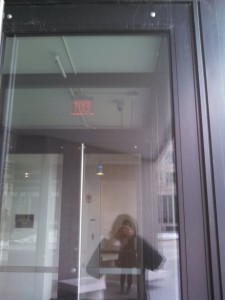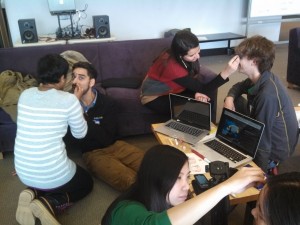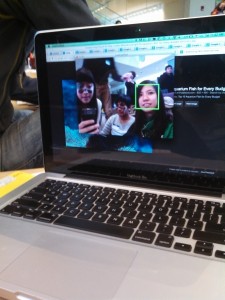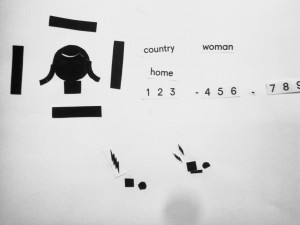Author Archives: eCho
UYC @ the DiscoTech!
Daniel: The discotech was an interesting experience for learning about surveillance and counter surveillance activism. Through talking with the numerous attendees there, I came out with a fresh perspective on how to approach social issues and think about these problems, such as surveillance, with a more critical and analytical mindset. I thought it was also interesting to see numerous artists who were there, also accomplished with their various social projects they are currently undertaking. During the hands on workshop, I especially found the analytical workshop for threatmodeling and the facepainting very informative. The face painting demo demonstrated the far reaches of technology, and how advanced facial recognition technology currently is. I believe the experience I gained at the DiscoTech will definitely allow me to be more aware of surveillance issues in the future.
Hello, I’m Elizabeth
Hello all! My name is Elizabeth Cho, but I more often go by first intitial and last name (Echo, but pronounced “eee cho”). I’m a sophomore at Wellesley College who just declared Cinema and Media Studies, or CAMS as we call it, as my major last semester. More recently, I’m beginning to strongly consider Computer Science as a potential minor, despite being one of those students who swore she wasn’t built for science or math (if anything, I’m beginning to realize that holding such a conviction held me back from considering CS-y things earlier). I wanted to take this class because I have a particular fascination with how people use media to connect on social, political and even emotional levels, and I wanted to see how I can implement this interest “irl”. I’m even more excited that this class can help me in considering what it is I’d like to do with the education I’m being given all while I can help a local organization. Though I consider myself to be very much at beginning level 1 in Civic Media, I hope that doesn’t scare off potential partners. As far as a quick, personal background, I’m originally from Chino, California, a suburb about 40 minutes south east of Los Angeles. My parents are both immigrants, my mother being from Nayarit, Mexico and my father being from Seoul, Korea. I’m the first in my family to attend a four-year college, and as such I feel a strong commitment and tie to my community and the southern California/ LA/ Inland Empire area.
Being Californian serves as a nice segue into the second point I’d like to mention in this post; that of The Day We Fight Back. I decided to partake in the event by emailing and calling my Californian representative and discussing the issue with my peers. All of this I did only after reading more about the background of the event, visiting some reddit threads, and skimming through the proposed bills. The emailing was, not surprisingly, effortless to do. I entered my name and zipcode and within a minute received a “Thank you for emailing!” from the organization. I decided afterwards to also call my representatives, and while I was easily able to leave messages with the staffers of Senator Barbara Boxer and my representative Gloria Negrete McLeod, Senator Diane Feinstein’s calling hours were suspiciously closed. Lastly, I found my conversations with other students to be especially revealing about the sentiment of surveillance and political action. My roommate, in particular, had mentioned that while she feels generally negative about the issue, she simply doesn’t feel a need to go so far as to download and learn software like Tor “just to hide that I looked at tumblr today.” I think that many people feel similarly concerning the idea of surveillance, and I think this class will bring to light the many different ways surveillance affects people and the ways we can react and counter that.



